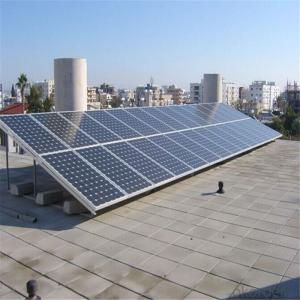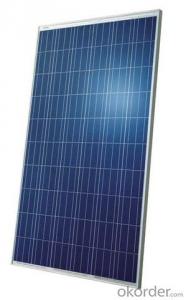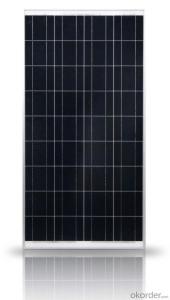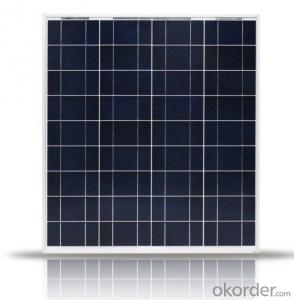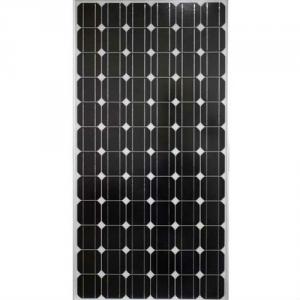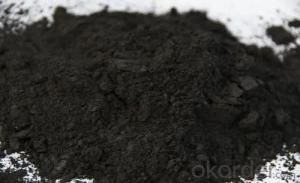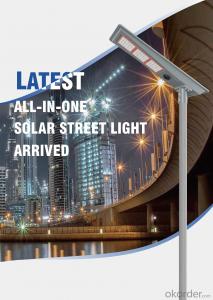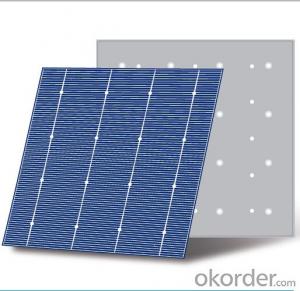255 Watt Photovoltaic Poly Solar Panels
- Loading Port:
- China main port
- Payment Terms:
- TT OR LC
- Min Order Qty:
- 1000 watt
- Supply Capability:
- 500000 watt/month
OKorder Service Pledge
OKorder Financial Service
You Might Also Like
Item specifice
Instruction
Quality and Safety
1. Rigorous quality control meets the highest international standards.
2. High-transmissivity low-iron tempered glass, strong aluminium frame.
3. Using UV-resistant silicon.
4. IS09001/14001/CE/TUV/UL
5.3w-300w mono & poly solar panel supply
Warranties
1. 10 years limited product warranty
2. 15 years at 90% of the minimal rated power output
3. 25 years at 80% of the minimal rated power output
Feature
1. High efficiency and High power.
2. Long-term electrical stability.
3. Lowest price and Fastest delivery.
4. Good quality and good service.
5.Bulk supply
6. Good Warranty
7.Big Sale
8.High quality
9.More than 35 years on the lifetime.
10 DHL/Fedex/UPS/TNT/EMS etc
Images
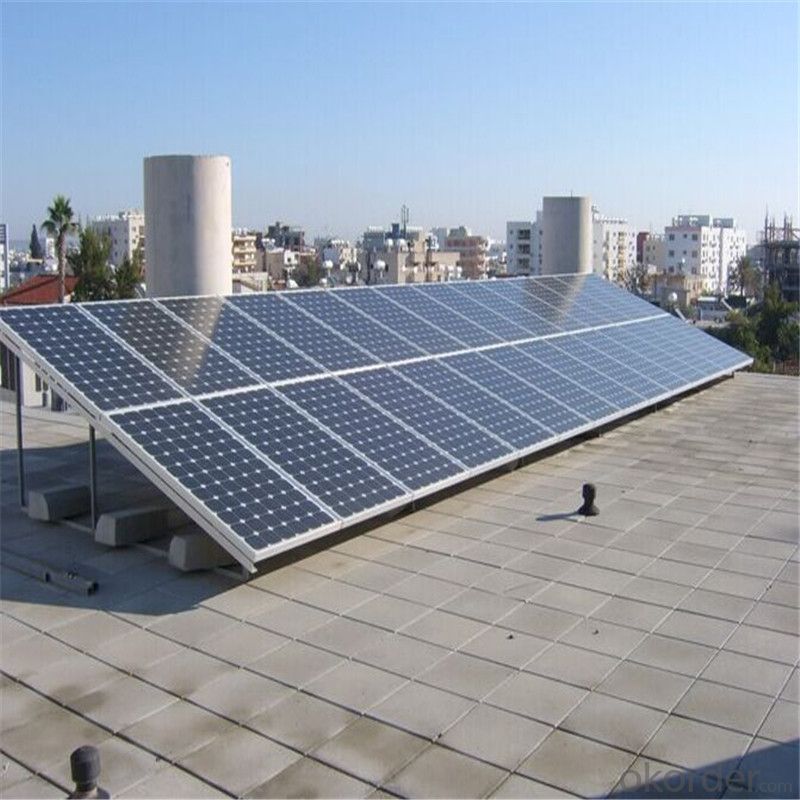
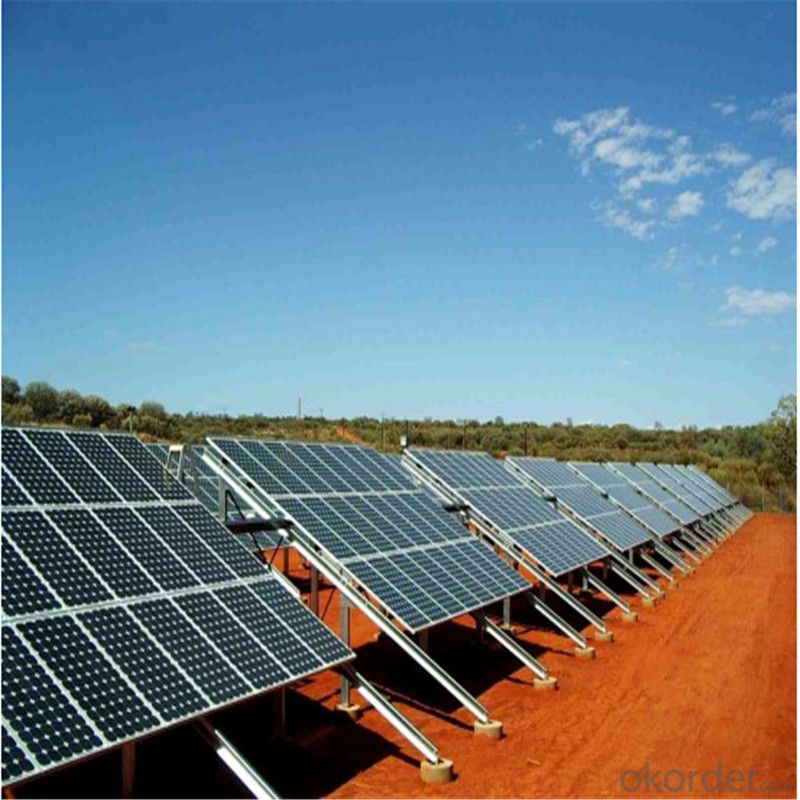
Specification
Model | SIM-100 |
Maximum Power at ST(Pmax)W | 100Wp |
Maximum Power Voltage(Vmp)V | 18.0V |
Maximum Power Current(Imp)A | 5.56A |
Open Circuit Voltage(Voc)V | 22.0V |
Short Circuit Current(Isc)A | 5.9A |
Cell Efficiency(%) | 17.0% |
Module Efficiency(%) | 15.37% |
Operating Temperature°C | -40°C to 85°C |
Maximum system voltage | 1000V(IEC)DC |
Power tolerance | -0.03 |
Temperature coefficients of Pmax | -0.45%/°C |
Temperature coefficients of Voc | -0.27%/°C |
Temperature coefficients of Isc | 0.05%/°C |
Weight(kg) | 7.4 |
Number of cell(pcs) | 4*9 |
FAQ
We have organized several common questions for our clients,may help you sincerely:
1). What’s price per watt?
A: It’s depends on the quantity, delivery date and payment terms of the order. We can talk further about the detail price issue. Our products is high quality with lower price level.
2). Can you tell me the parameter of your solar panels?
We have different series of cells with different power output, both from c-si to a-si. Please take our specification sheet for your reference.
3). How do you pack your products?
We have rich experience on how to pack the panels to make sure the safety on shipment when it arrives at the destination.
4). How long can we receive the product after purchase?
In the purchase of product within three working days, We will arrange the factory delivery as soon as possible. The perfect time of receiving is related to the state and position of customers. Commonly 7 to 10 working days can be served.
- Q:Can solar cells be used for water heating?
- Yes, solar cells can be used for water heating. Solar water heating systems use solar panels, which contain solar cells, to capture energy from the sun and convert it into heat. This heat is then used to warm water for various applications, such as domestic hot water or space heating.
- Q:What is the maximum efficiency of a solar cell?
- The maximum efficiency of a solar cell refers to the highest percentage of sunlight that can be converted into electricity, which is currently around 46%.
- Q:What materials are commonly used in solar cells?
- Some common materials used in solar cells include silicon, cadmium telluride, and copper indium gallium selenide.
- Q:What is the solar cell production process
- Will be inexhaustible sunshine into the benefit of mankind for the benefit of electricity, the core technology is the solar cell photoelectric conversion rate.
- Q:What is the impact of saltwater exposure on solar cell efficiency?
- Saltwater exposure can have a significant negative impact on solar cell efficiency. The saltwater can corrode the metal components of the solar cells, leading to a decrease in their performance and overall efficiency. Additionally, the saltwater can create a conductive pathway that can bypass the solar cells, resulting in a loss of electrical energy. Therefore, it is crucial to protect solar cells from saltwater exposure to maintain their efficiency and prolong their lifespan.
- Q:Can solar cells be used in mountainous regions?
- Yes, solar cells can be used in mountainous regions. In fact, mountainous regions can often be advantageous for solar energy generation due to the higher altitude and reduced air pollution, which can result in increased solar radiation. However, the installation of solar panels may require careful consideration of factors such as slope, orientation, and potential shading from surrounding mountains or trees.
- Q:Can solar cells be used to power refrigeration systems?
- Yes, solar cells can be used to power refrigeration systems. Solar cells convert sunlight into electricity, which can then be used to power various appliances, including refrigeration systems. This is particularly useful in off-grid or remote areas where access to conventional power sources may be limited.
- Q:What is the impact of maintenance and cleaning on solar cell performance?
- Maintenance and cleaning play a crucial role in maintaining optimal solar cell performance. Regular maintenance, such as inspecting and repairing any damages, ensures that the cells are functioning efficiently and effectively. Additionally, cleaning the solar panels helps remove any dirt, dust, or debris that can accumulate and hinder sunlight absorption. By keeping the panels clean and well-maintained, solar cell performance is maximized, resulting in higher energy production and increased overall efficiency.
- Q:Can somebody list some of the materials used for making solar cells?
- Solar cells are typically named after the semiconducting material they are made of.
- Q:Can solar cells be used in traffic management systems?
- Yes, solar cells can be used in traffic management systems. Solar cells are a renewable and sustainable source of energy that can provide power for traffic lights, road signs, surveillance cameras, and other equipment used in traffic management systems. By relying on solar energy, these systems can reduce their carbon footprint and decrease dependency on grid electricity.
1. Manufacturer Overview |
|
|---|---|
| Location | |
| Year Established | |
| Annual Output Value | |
| Main Markets | |
| Company Certifications | |
2. Manufacturer Certificates |
|
|---|---|
| a) Certification Name | |
| Range | |
| Reference | |
| Validity Period | |
3. Manufacturer Capability |
|
|---|---|
| a)Trade Capacity | |
| Nearest Port | |
| Export Percentage | |
| No.of Employees in Trade Department | |
| Language Spoken: | |
| b)Factory Information | |
| Factory Size: | |
| No. of Production Lines | |
| Contract Manufacturing | |
| Product Price Range | |
Send your message to us
255 Watt Photovoltaic Poly Solar Panels
- Loading Port:
- China main port
- Payment Terms:
- TT OR LC
- Min Order Qty:
- 1000 watt
- Supply Capability:
- 500000 watt/month
OKorder Service Pledge
OKorder Financial Service
Similar products
New products
Hot products
Hot Searches
Related keywords
